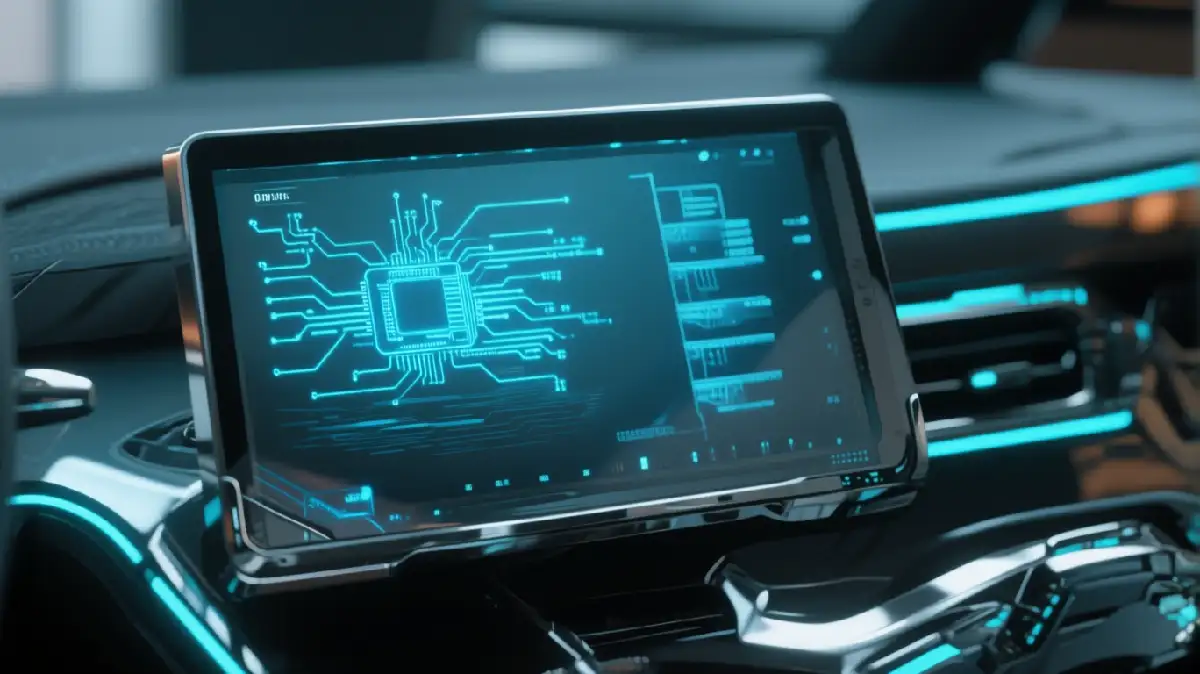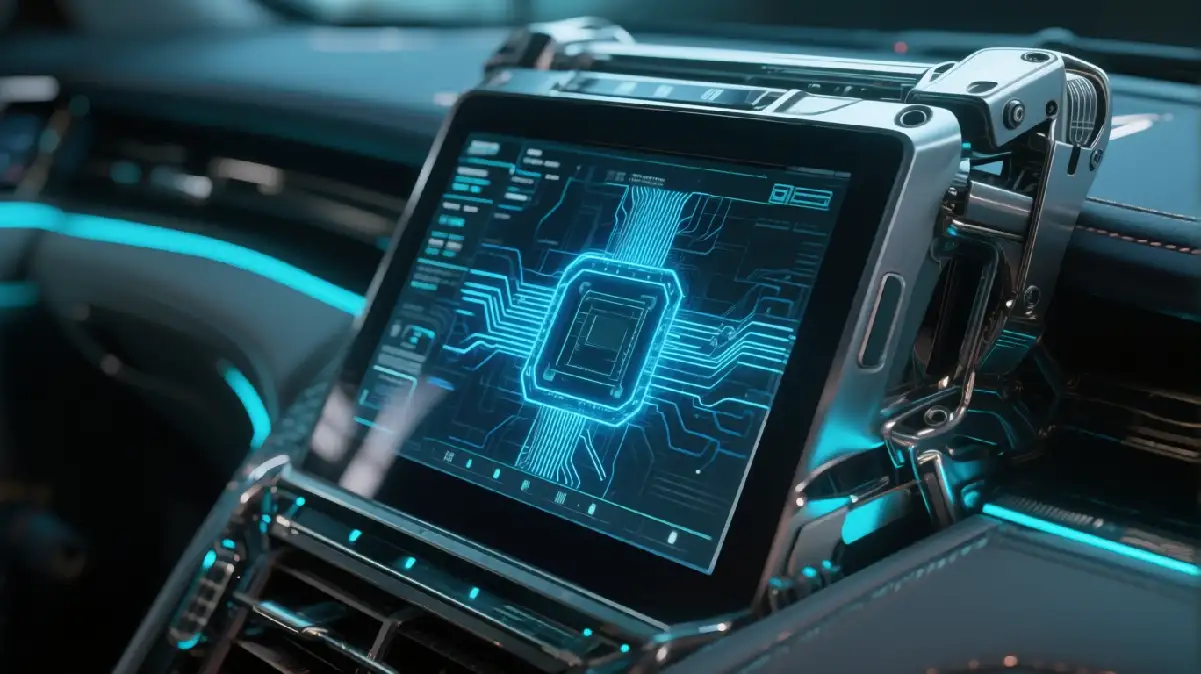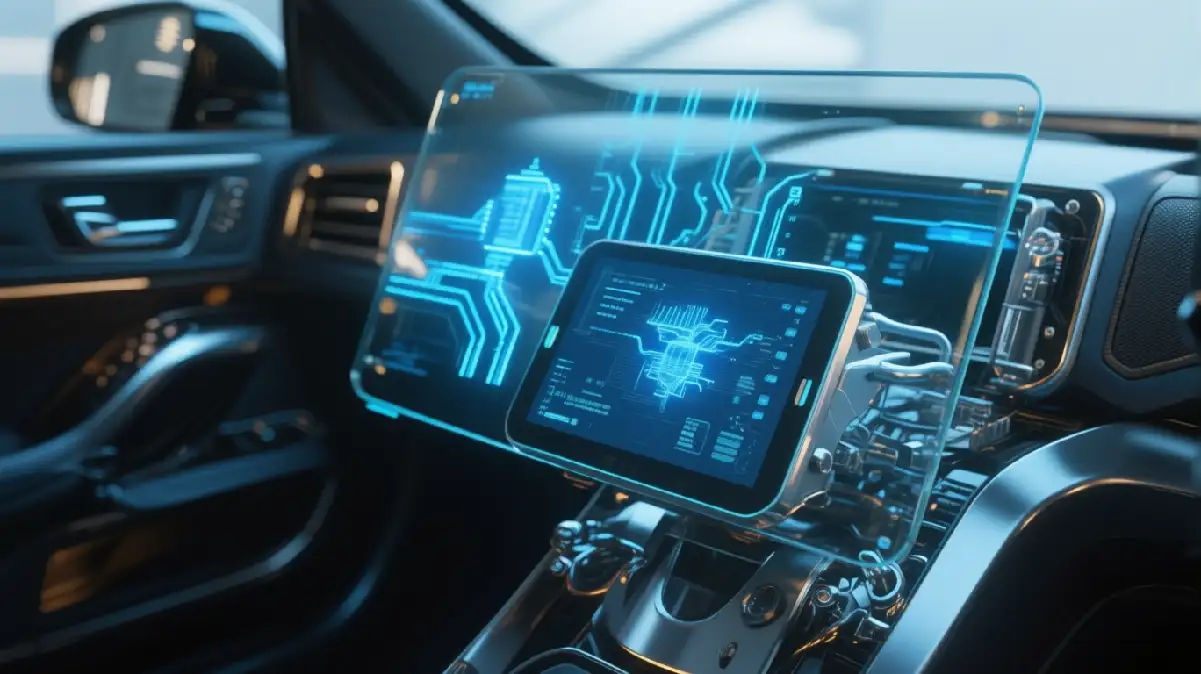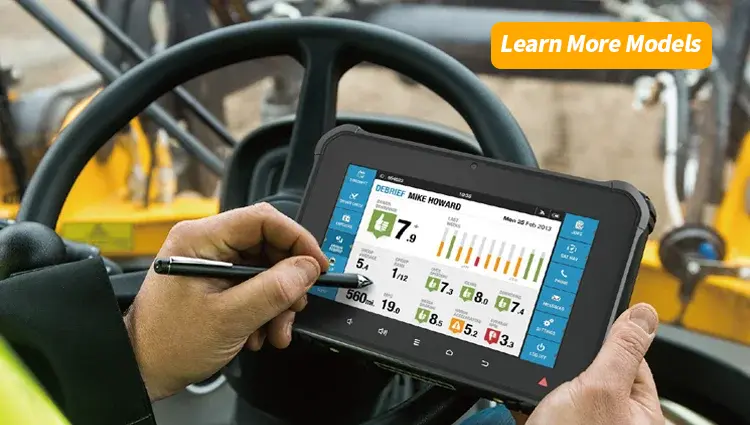Why you Need On-board Computer
on-board computers are pretty much a must-have. Whether it’s in transportation, logistics, safety, or construction, these smart systems give real-time info, make things run smoother, and help with making smarter choices. As more companies go digital, having dependable onboard computers means vehicles stay in top shape and everyone stays connected, knowledgeable, and following the rules.

What is an On-Board Computer?
An on-board computer (OBC) is an integrated device installed in vehicles to monitor, manage, and optimize operations. Unlike standard consumer tablets, OBCs are purpose-built with rugged hardware, vehicle interfaces, and specialized software that enable them to withstand extreme environments. They serve as the nerve center of the vehicle, collecting data from sensors, processing it in real time, and communicating with central systems through cellular, Wi-Fi, or satellite connectivity.
Key functions of on-board computers include:
- Vehicle diagnostics and health monitoring
- GPS-based navigation and tracking
- Fuel consumption analysis
- Driver behavior monitoring
- Fleet communication and dispatch integration
Enhancing Fleet Efficiency with On-Board Computers
Fleet operators face constant pressure to reduce operational costs while increasing efficiency. On-board computers provide powerful tools to achieve these goals.
- Real-Time GPS Tracking: Fleet managers can monitor vehicle locations at all times, allowing for optimized routing and improved scheduling.
- Fuel Management: By analyzing driver habits, speed, and idling times, OBCs help identify opportunities to cut fuel waste.
- Maintenance Alerts: On-board diagnostics notify managers of upcoming service needs, reducing downtime and avoiding costly repairs.
- Data-Driven Decisions: With centralized dashboards, managers can analyze performance trends and make informed adjustments to improve fleet productivity.

On-Board Computers for Compliance and Safety
Regulatory compliance and safety are critical in industries such as transportation, mining, and construction. On-board computers play a pivotal role in maintaining these standards.
- Electronic Logging Devices (ELDs): OBCs automate driver logbooks, ensuring compliance with hours-of-service regulations.
- Driver Behavior Monitoring: Speeding, harsh braking, and acceleration patterns are tracked, promoting safer driving practices.
- Incident Reporting: In the event of an accident, the OBC records vital information such as speed, GPS location, and impact data, assisting with insurance claims and investigations.
- Environmental Compliance: By monitoring emissions and vehicle performance, companies can meet strict environmental standards such as CARB (California Air Resources Board) requirements.
Applications of On-Board Computers in Key Industries
1. Transportation and Logistics
Logistics companies rely heavily on accurate tracking and efficient routing. On-board computers provide real-time communication between drivers and dispatchers, improving delivery times and reducing operational costs.
2. Public Safety and Emergency Services
Police vehicles, ambulances, and fire trucks integrate OBCs to access mission-critical data instantly. This ensures quick response times, accurate navigation, and live updates to central command.
3. Mining, Agriculture, and Construction
In harsh outdoor environments, rugged on-board computers support heavy equipment operators. They monitor fuel use, track productivity, and provide predictive maintenance insights, maximizing uptime and safety.
4. Passenger Transport (Bus and Taxi Fleets)
From passenger information systems to automated ticketing, OBCs streamline operations for public buses, coaches, and taxis. They also provide enhanced driver-passenger communication and route optimization.
The Technology Behind Modern On-Board Computers
Modern OBCs are built on robust hardware and intelligent software platforms designed to perform reliably under extreme conditions. Key technological features include:
- Ruggedized Hardware: With IP65+ ratings, shock resistance, and wide operating temperature ranges, these devices withstand vibration, dust, and heat.
- High-Performance Processors: Multi-core CPUs ensure fast data processing and seamless multitasking.
- Advanced Connectivity: Support for 4G/5G LTE, Wi-Fi, Bluetooth, and satellite ensures uninterrupted communication.
- Customizable Operating Systems: Most OBCs run on Android, Windows, or Linux, offering flexibility for industry-specific applications.
- Peripheral Integration: USB, CAN bus, RS232/485, and GPIO ports allow direct connection to sensors, tachographs, and external modules.

Benefits of On-Board Computers for Businesses
The decision to invest in on-board computers delivers measurable results across industries. Benefits include:
- Operational Cost Reduction: Less fuel waste, reduced idle time, and fewer breakdowns.
- Improved Safety: Monitoring driver behavior reduces accidents and liability risks.
- Higher Productivity: Optimized routing and communication cut down delays and improve job completion times.
- Better Customer Service: Accurate delivery times and real-time status updates boost client satisfaction.
- Scalability: OBCs integrate easily into existing fleet management systems, allowing businesses to scale operations efficiently.
Future Trends in On-Board Computers
The evolution of smart transportation is driving rapid innovation in on-board computer systems. Emerging trends include:
- AI-Powered Predictive Analytics: Anticipating vehicle failures before they occur to minimize downtime.
- Integration with IoT Devices: Connecting OBCs with a wide range of sensors for smarter, data-driven insights.
- Autonomous Driving Support: Providing real-time data essential for semi-autonomous and fully autonomous vehicles.
- Cloud-Based Fleet Management: Allowing companies to access, analyze, and share data across global operations seamlessly.
Choosing the Right On-Board Computer
Selecting the right OBC depends on industry requirements and operating environments. Businesses should consider:
- Ruggedness: Devices must withstand the physical and environmental demands of the industry.
- Compatibility: Ensure support for existing fleet management systems and peripheral devices.
- Scalability: The ability to expand features as operations grow.
- Support and Warranty: Reliable after-sales support is essential for long-term performance.
Conclusion
Investing in an on-board computer is no longer a luxury—it is a strategic necessity. Whether for fleet management, compliance, safety, or productivity, OBCs deliver measurable benefits that directly impact business success. As industries continue to evolve toward connected and intelligent transportation systems, on-board computers remain the foundation of efficient and future-ready vehicle operations.
Latest Content
- What is a Mobile Data Terminal (MDT)? Ultimate Guide for 2026
- How Rugged Tablets Maximize Field Efficiency
- Unix tablet-Comprehensive Guide to Linux Tablets and Tablet Linux
- Mining Operations Redefined: Durable Rugged Tablets for Harsh Environments & Safety
- Maximizing Fleet Efficiency: What is a Mobile Data Terminal Used For?







